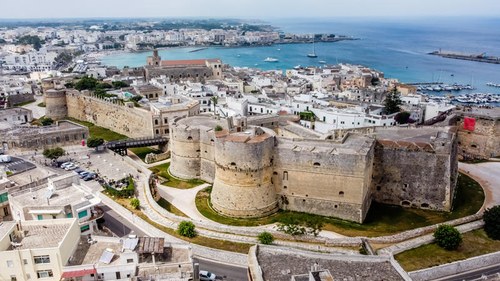Venues
In this section you can find details regarding the locations where the summer school will take place

2026 Edition
In 2026, the Summer School activities will return to Bologna, where the first five editions of the program were also held. The School will take place in one of the main facilities of the Department of the Arts, the DAMSLab in Piazzetta P. P. Pasolini 5/b.
The venue is part of the former municipal slaughterhouse, inside the Manifattura delle Arti, located in Piazzetta P.P. Pasolini 5/b. The area, originally designed in 1883 by the architects Priori and Buriani, has been renovated since 1996, with a joint effort by the Municipality and the University of Bologna, under the directions of architect Aldo Rossi. On these premises, delivered in 2003 to the Department of Music and Performing Arts, and now available to the Department of the Arts, numerous spaces (Auditorium, Theater, Spazio Cinema, Seminar Room and Hall) are available to host part of the teaching, research and third mission activities of the Department, including conferences, exhibitions, installations, film screenings, workshops and performances. Since 2018 the space has been renamed DAMSLab.
DAMSLab
Piazzetta P.P. Pasolini, 5/b - Bologna
Bologna offers a variety of choices when it comes to accommodation.
You can choose to rent an apartment or just a room, book a hotel or a bed and breakfast. While Bologna offers reliable public transportation, we suggest booking a place in the historical city centre, to be closer to the venues hosting classes and additional activities.
For further information and assistance please contact us:
dar.mediatingitaly@unibo.it

The Department of the Arts' main location is at Palazzo Marescotti Brazzetti.
This elegant Renaissance building is located in Via Barberia 4. Designed by Giovanni Beroaldo on the ruins of previous buildings, it was enriched over the centuries by the frescoes of Rolli and Caccioli, and by the grandiose Baroque staircase created by Gian Giacomo Monti. The main floor has frescoes completed by Domenico Maria Canuti with stucco work (1682) by Giovanni Francesco Bezzi; Marcantonio Franceschini and Enrico Haffner (1682); and by the brothers Giovanni and Antonio Rolli (1683) including the grand salon, which they worked in during 1687 but completed (1709) by Giuseppe Antonio Caccioli.
In 1947, the palace hosted the headquarters of the Italian Communist Party (PCI) and related institutions, such as the Gramsci Institute and the editorial staff of "L'Unità" in Bologna. In 1997, it was acquired by the Alma Mater Studiorum that completed its restoration in 2007.
Palazzo Marescotti is also the administrative headquarters of the summer school: for any assistance you can find help on the second floor of this building.
Previous Editions

In 2023 the Summer School took place at the Rimini Campus of the University of Bologna between Palazzo Ruffi Briolini (Corso d’Augusto 237) and the nearby Complesso Aule Alberti (Via Q. Sella 13).
Palazzo Ricciardelli, now Ruffi - Briolini, is an antique building in Rimini's historical center. The palace, dating back to the 15th Century, was initially a sumptuous Renaissance residence, with an imposing courtyard with a double order of arches on columns. Despite the bombings of World War II, it retains something of its ancient appearance both internally and externally. The entire building has recently been totally restored and, thanks to skillful restoration, has managed to retain its former magnificence and beauty. Since 2021, it has been a Headquarters Organizational Unit (UOS) of the Department of the Arts.
Furthermore, Rimini is both a tourist hotspot, renowned for its beaches and nightlife entertainment, and an important cultural city that bore one of the greatest Italian filmmakers of our times: Federico Fellini. It was specifically in Rimini and at the Fulgor cinema that Fellini fell in love with the big screen and found inspiration for his work. Palazzo del Fulgor today hosts a multi-location museum center dedicated to Fellini's genius, which was included by the Ministry of Culture among the great national projects of cultural heritage. Here visitors can retrace his biographical and creative career by delving into his projects thanks to the digital archives and interactive tools that allow visitors to access original materials, drawings, posters, vintage books and magazines, films, and audiovisual documents.
The city's historic center can be easily reached from the railway station. Many services are available specifically for students: interdisciplinary library, study rooms open all day and at weekends, IT and scientific-technological laboratories, internet points, and open wireless connection.

In 2024 the summer school – organized in partnership with the University of Salento, the Apulia Film Commission, and the Municipality of Otranto – was held at the Sala Triangolare of the Aragonese Castle (Otranto).

In 2025 the summer school activities – organized in partnership with the University of Salento as part of the project Digital and International Arts through Augmented Reality and Research for Young Students (Artists) – “D.I.A.R.Y.” – were held in several locations in Lecce (Apulia), including Convitto Palmieri and Monastero degli Olivetani.